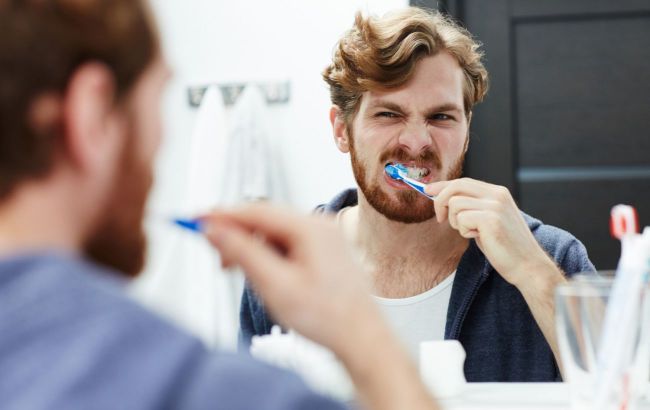Everyday habits that destroy your teeth
 Habits that are harmful to teeth revealed (photo: Freepik)
Habits that are harmful to teeth revealed (photo: Freepik)
Some daily habits that seem harmless can seriously damage teeth. Here’s what to avoid in everyday life, according to HuffPost.
Not drinking enough water
Dentist Catrise Austin explains that staying hydrated is one of the most important health habits. Saliva is a natural protective mechanism in the mouth, and proper hydration helps its production. A dry mouth creates an environment where bacteria thrive, increasing the risk of cavities, gum disease, and bad breath.
Coffee or energy drinks can cause dryness without you even realizing it. It’s best to sip water throughout the day and use an alcohol-free mouthwash to maintain saliva levels.
A study published in the journal Multidisciplinary Digital Publishing Institute (MDPI) found that people who consumed more water had a lower risk of cavities and periodontal disease.
Frequent consumption of carbonated drinks
Prosthodontist Jie Sun notes that the carbonic acid in fizzy drinks is acidic and gradually softens tooth enamel. Regular consumption of acidic beverages keeps teeth in a constant state of acid attack, weakening enamel over time and increasing the risk of sensitivity and decay.
Research published in JADA Foundational Science compared sweetened and sugar-free carbonated drinks and found that acids in both caused enamel erosion. Limiting soda intake to once a day during meals is recommended.
Drinking fresh juices or apple cider vinegar
Juices and apple cider vinegar may seem healthy, but they are highly acidic. Citrus fruits like lemon, lime, grapefruit, and pomegranate should be consumed with caution. Use a straw to minimize contact with teeth, and rinse your mouth with water afterward. It’s best to drink only a few fresh juices per week.
Constant snacking
Frequent snacking, especially on sugary or acidic foods and drinks, exposes teeth to repeated acid attacks. Saliva needs time to neutralize acids, and continuous snacking prevents enamel from recovering.
Carbohydrates are particularly risky, as they convert to sugar and feed bacteria, increasing oral acidity.
Studies among preschoolers in Saudi Arabia, published on PubMed, found that daily fruit juice consumption significantly increased the risk of enamel erosion, while limiting juice to 1–6 times per week reduced the risk.
Using alcohol-based mouthwash
Some oral hygiene products can do more harm than good. Alcohol-containing mouthwashes dry out the mouth and disrupt the oral microbiome.
According to Medical News Today, alcohol kills not only harmful but also beneficial bacteria, potentially promoting harmful bacteria associated with gingivitis, certain cancers, and inflammation. Alcohol-free fluoride mouthwashes are recommended instead.
Brushing teeth immediately after eating
Food lowers the mouth’s pH and softens enamel. Brushing immediately can accelerate enamel wear due to mechanical abrasion. Over time, this increases sensitivity, risk of decay, and visible damage.
It’s best to wait at least 30 minutes after eating before brushing to allow saliva to restore the natural pH balance.
Biting nails
This common nervous habit damages teeth. Beyond hygiene concerns, nail biting exerts unnatural pressure, leading to enamel wear, chips, and potential tooth mobility.
The American Academy of Dermatology recommends trimming nails after a warm shower when they are softer and filing in one direction to avoid weakening them.
This material is for informational purposes only and should not be used for medical diagnosis or self-treatment. Our goal is to provide readers with accurate information about symptoms, causes, and methods of detecting diseases. RBС-Ukraine is not responsible for any diagnoses that readers may make based on materials from the resource. We do not recommend self-treatment and advise consulting a doctor in case of any health concerns.

